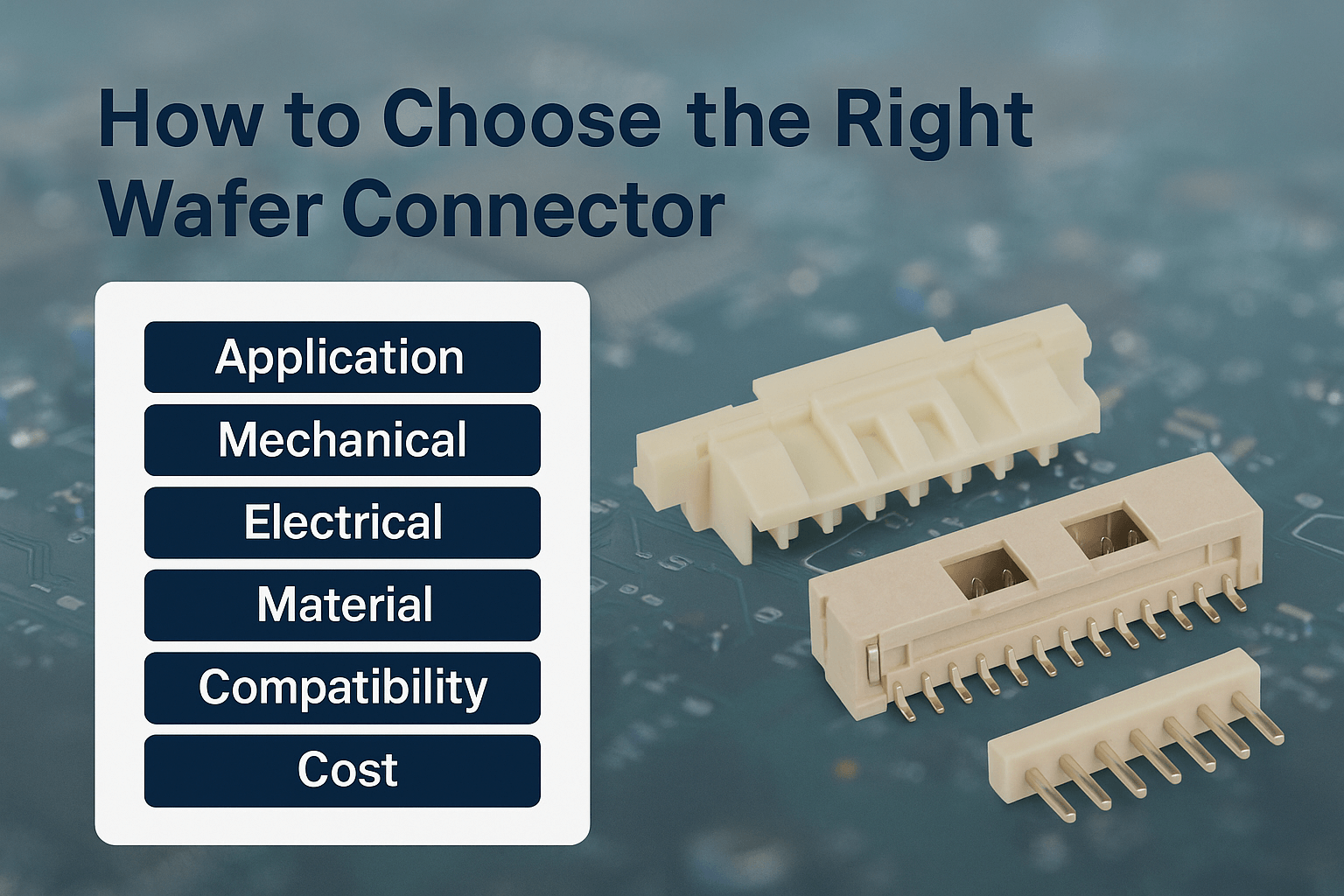How to Choose the Right Wafer Connector
Selecting the right wafer connector requires evaluating multiple factors to ensure it meets the specific application requirements. Below are key considerations when choosing a wafer connector:

1. Application Requirements
- Current and Voltage Ratings: Determine the required current-carrying capacity and voltage level, selecting a wafer connector that can handle the maximum expected voltage.
- Signal Type: Consider whether the transmission involves analog or digital signals and the frequency range of the signal.
- Environmental Conditions: Assess factors such as temperature, humidity, vibration, and impact to ensure the wafer connector performs reliably in the intended environment.
2. Mechanical Characteristics
- Size and Space Constraints: Choose a wafer connector that fits within the available space.
- Mounting Method: Consider whether the wafer connector is surface-mounted (SMT) or through-hole (THT).
- Strength and Durability: Ensure the wafer connector can withstand expected mechanical stress.
3. Electrical Characteristics
- Contact Resistance: Select a wafer connector with low contact resistance to minimize energy loss.
- Insulation Resistance: Ensure proper insulation to prevent short circuits or leakage.
- Dielectric Withstanding Voltage: Choose a wafer connector that can endure the highest expected voltage.
4. Material and Manufacturing
- Material Compatibility: Ensure the connector’s material is compatible with the application environment and other components.
- Manufacturing Quality: Opt for reputable manufacturers to guarantee product quality and consistency.
5. Cost-Effectiveness
- Budget: Compare different wafer connector options to select a cost-effective solution.
- Long-Term Costs: Consider maintenance and replacement costs when choosing a durable and easy-to-maintain connector.
6. Compatibility and Standardization
- Interface Standards: Ensure the wafer connector complies with industry standards and specifications.
- Compatibility with Other Components: Verify that the wafer connector integrates seamlessly with the existing system and other components.



